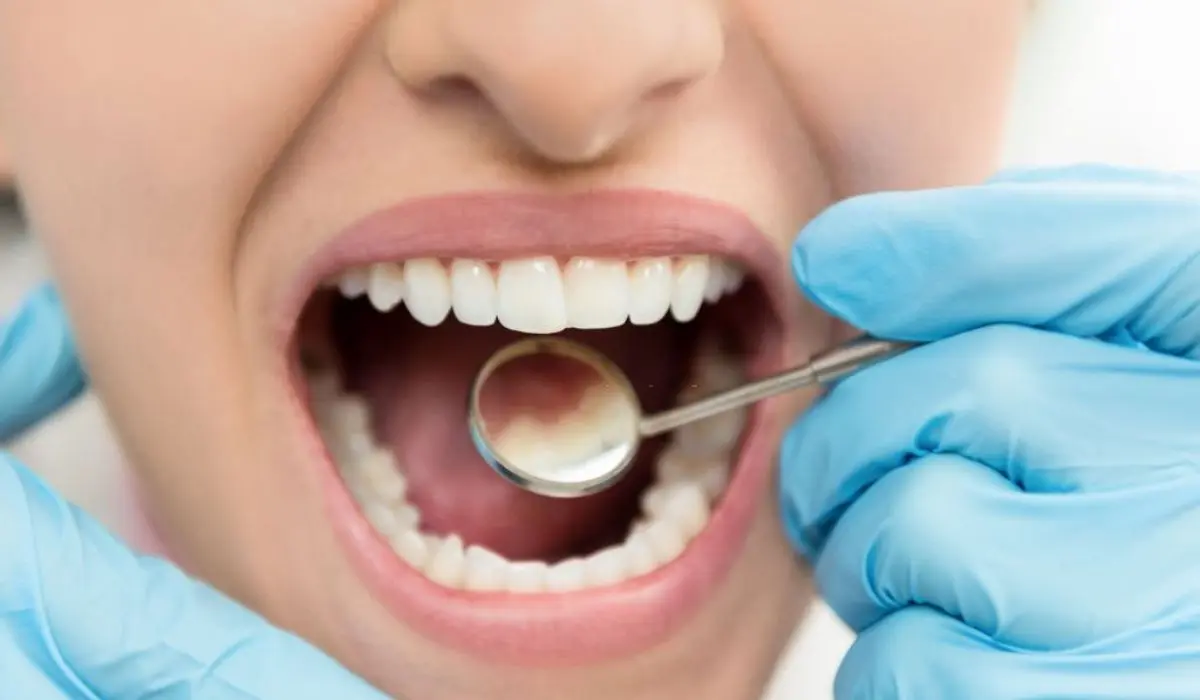Calcium is a critical mineral for building and maintaining strong, healthy teeth. When the body does not get enough calcium, teeth are vulnerable to damage and decay.
Recognizing the signs, causes, and solutions for calcium deficiency in teeth enables proper reinforcement of this important structural mineral.
Calcium’s Role In Dental Health
Along with phosphorus and other minerals, calcium is an essential part of teeth. It is crucial for supporting general oral health as well as the growth and maintenance of tooth structure.

To avoid dental problems and keep a bright smile, it’s essential to consume enough calcium throughout your life.
What Are The Signs Of Calcium Deficiency In Teeth?
Potential signs of inadequate calcium levels affecting dental health include:
▪️ Tooth decay
Low calcium can lead to weaker tooth enamel that is more prone to cavities and caries.
▪️ Gum disease
Calcium supports bone density and gum tissue health. Deficiency can contribute to gingivitis and periodontal disease.
▪️ Cracks/Chips
A lack of calcium minerals makes teeth more susceptible to chipping, cracking, or fracturing.
▪️ Delayed tooth development
Calcium is essential for proper enamel and dentin formation and mineralization in growing teeth.
▪️ Enamel hypoplasia
Underdevelopment or thin enamel due to insufficient calcium levels during tooth formation.
▪️ Discoloration
Teeth may develop white spot lesions, yellowish hues, or brown stains without adequate calcium.
▪️ Increased sensitivity
Calcium provides insulation protecting the tooth‘s inner nerves. Low levels reduce this barrier.
▪️ Irregular alignment/crowding
Calcium supports jaw bone density needed for proper tooth positioning.
▪️ Loss of tooth structure
Deficiency makes teeth prone to excessive wear, abrasion, and erosion over time.
Causes Of Calcium Deficiency In Teeth
➜ Inadequate dietary calcium intake
Not eating enough calcium-rich foods like dairy, leafy greens, nuts, beans, and seafood.
➜ Vitamin D deficiency
Vitamin D is needed for absorbing and utilizing calcium. Deficiency impairs calcium incorporation into teeth.
➜ Lactose intolerance
The inability to digest dairy makes it hard to get sufficient calcium from the diet.
➜ Gastrectomy surgery
Removal of parts of the stomach hampers calcium absorption.
➜ Celiac disease
Gluten inflammation damages the small intestine’s ability to absorb calcium.
➜ Inflammatory bowel diseases
Crohn’s and ulcerative colitis impair calcium absorption.
➜ Medications
Corticosteroids, anticonvulsants, and proton pump inhibitors can inhibit calcium absorption.
➜ Endocrine disorders
Problems with parathyroid, thyroid, or sex hormones involved in calcium regulation.
➜ Renal failure
The kidneys activate vitamin D needed for calcium absorption.
➜ Smoking
Depletes calcium stores and is associated with gum disease risk.
➜ Excess sodium, protein, caffeine
These can promote calcium excretion leading to deficiency over time.
Ensuring adequate intake of bioavailable calcium through food and supplementation can help prevent deficiency.
Underlying conditions or medications that impair absorption or regulation should also be addressed.
Prevention of Calcium Deficiency in Teeth
Conclusion
Getting sufficient calcium is crucial for building and maintaining the structural integrity of teeth. Calcium deficiency can increase susceptibility to decay, gum disease, cracks, chips, and discoloration.
Ensuring adequate intake through diet and supplementation aids strong dentition and mineralization. Prompt treatment helps reinforce teeth already impacted.
FAQs
Dairy like milk, yogurt, and cheese; leafy greens, fortified cereals and juices, nuts and seeds.
1,000 mg of calcium is recommended daily for adequate dental health and development.
Yes, increasing calcium intake through diet, supplementation, and treatment of any conditions causing deficiency can restore minerals to teeth and jawbone.
Yes, vitamin D aids calcium absorption, and deficiency can contribute to gum disease and tooth decay.

